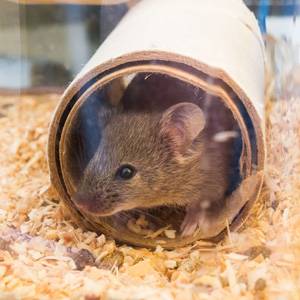
UCL is a world-leading medical research institution and animal research forms a relatively small but vital proportion of our work. 26% of our research staff have used animals at least once during their UCL career.
These pages outline why and when animal research is necessary, how this is governed and how we are working to reduce, refine and replace animal research where possible. Examples of UCL research using animals and alternative methods are provided alongside facts and figures detailing how many animals are used in UCL research each year.
The bigger picture
Animal research has been at the heart of medical progress throughout history, and much of the medicine we take for granted has roots in animal studies. From penicillin and painkillers to cutting-edge cancer drugs, animal research has played a crucial part in the development of almost every medical treatment used today.
Research using animals continues to make vital contributions to the understanding and treatment of many major health problems including cancer, heart disease, dementia and stroke. In addition to the benefits for human health, such research also helps us to better understand conditions affecting animals and develop treatments for them.
 Close
Close

